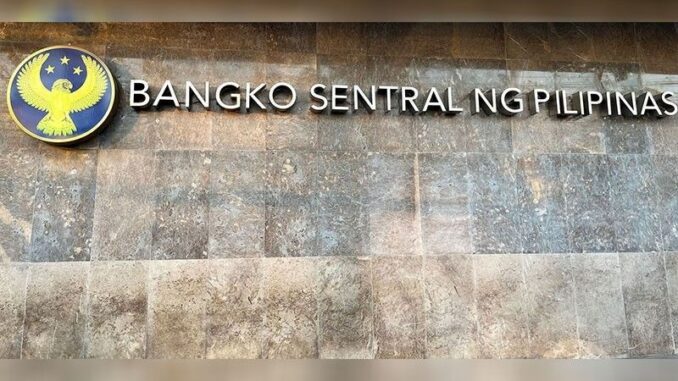
MANILA, Philippines — The Bangko Sentral ng Pilipinas (BSP) may opt for a temporary pause in cutting borrowing costs next month if the Philippine peso weakens further against the US dollar, according to economists.
Aris Dacanay, economist for ASEAN at HSBC Global Research, said he expects inflation to average below three percent in 2025, giving the BSP room to continue its easing cycle in December. But, there is one risk worth flagging.
“If the peso weakens against the dollar due to global events, such as the US election, the BSP may opt to briefly pause its easing in December to give itself some flexibility if financial markets were to remain volatile,” he said.
After bouncing back to the 55 to $1 level in early September, the peso has weakened considerably and breached the 58 to $1 level again in October amid market uncertainties.
The market also remains cautious ahead of the US election results. The 2024 US presidential election has become a focal point for global financial markets, as the outcome could significantly impact international economic policies and inflation expectations.
“Nonetheless, the BSP should eventually continue its easing cycle once the volatility subsides, bringing the policy rate down to settle at five percent by 2025. In other words, if there are delays to the easing cycle, those delays will likely be only brief,” Dacanay said.
On local inflation, Dacanay said that although inflation rose to 2.3 percent in October from 1.9 percent in September, price pressures remained relatively moderate despite supply disruptions caused by recent typhoons.
He said that last month’s price increases were notable in fruits and vegetables, while fuel costs climbed as the peso’s depreciation made imports more costly. However, these were largely offset by a decline in rice prices.
While a December rate cut remains probable given the favorable inflation outlook, Bank of the Philippine Islands lead economist Jun Neri said that external factors could impact the central bank’s decision.
“The recent depreciation of the peso reflects the market’s concerns over the pace of the Federal Reserve’s rate cuts and the possibility that the Fed could pause,” Neri said.
“Markets continue to expect a rate cut from the Fed in November and December, but events in the past year have shown that these expectations can quickly shift,” he added.
According to Neri, upside risks to US inflation remain significant given the strength of its economy. Inflation expectations could also rise if Republicans win in the US elections as their policies are generally viewed as inflationary.
“These factors could alter the Fed’s policy trajectory, potentially exerting pressure on the peso. A pause in the rate cuts of the BSP continues to be possible given these uncertainties,” he said.


Be the first to comment